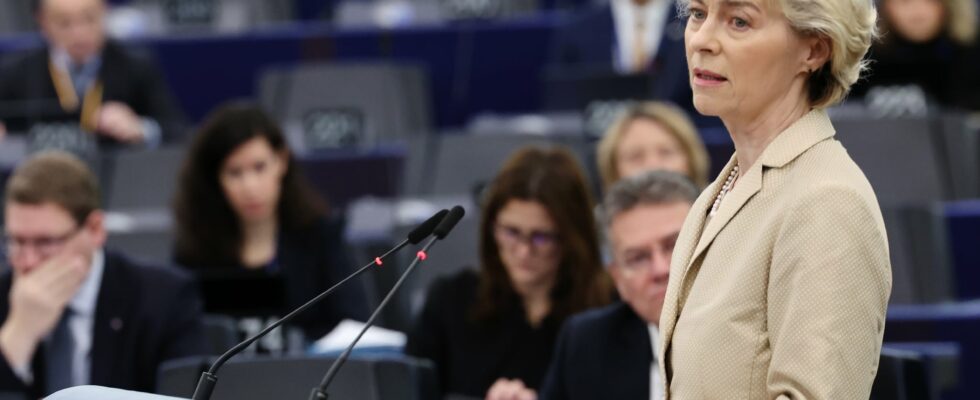Negotiations over the allocation of portfolios for the future European Commission in Brussels are dragging on. As a result, the presentation of the new team of commissioners, which was expected this Wednesday, will finally take place next Tuesday in Strasbourg.
The casting of the future European executive will be presented to the leaders of the political groups of the European Parliament on Tuesday morning, on the sidelines of the plenary of MEPs in Strasbourg, announced a spokesperson for the Commission. The delay is linked to the change of commissioner for Slovenia, which finally opted for Marta Kos, a former ambassador, whose candidacy must be approved by the Slovenian Parliament this Friday.
With this new candidate, European leaders are trying as best they can to deflate the controversy over the lack of women in the team that is being formed. At this stage, the new college could have around ten women out of 27, without achieving parity. Re-elected as head of the Commission in July, Ursula von der Leyen must define the profiles and responsibilities of the commissioners, one per Member State, who will make up this new executive for the period 2024-2029.
The allocation of the largest portfolios will send a signal regarding the weight of each Member State, but also of each political group, and the broad orientations that the Commission intends to promote, three months after European elections marked by a surge in the extreme right.
Hearings before MEPs
Asked about this postponement, French MEP Valérie Hayer, president of Renew Europe (centrists and liberals), acknowledged that the composition of the Commission was “obviously a difficult exercise”. “We will see next week what Ursula von der Leyen presents to us”, she declared. “We are in a constructive logic while remaining vigilant”, she continued. “We must have an operational college as soon as possible but not at any price”.
After the presentation of Ursula von der Leyen’s team, the potential commissioners will have to pass hearings before MEPs and submit to a vote of approval, an institutional arm wrestling match with the European Parliament, which often wants to mark its territory by rejecting certain candidates.
Like forming a government, putting together the commission is like doing a “puzzle” and it is a “very difficult period” given the many uncertainties, sighs the collaborator of one of the candidates. “There could be many surprises,” she assures. In the wake of the recent Draghi report on competitiveness, the commission could take a more economic-focused direction, in a Europe struggling to compete with the United States and China.
